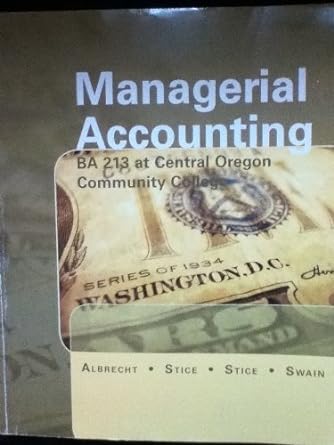Question
7. The following are true regarding Limited Liability Companies, except? a. The default tax treatment for a single member limited liability company is that of
7. The following are true regarding Limited Liability Companies, except?
a. The default tax treatment for a single member limited liability company is that of a disregarded entity.
b. The default tax treatment for a multi-member limited liability company is that of a partnership.**
c. A multi-member Limited Liability Company can elect tax treatment as a C corporation or an S corporation.
d. For legal purposes, a Limited Liability Company is treated the same as the type of entity elected for tax purposes. *
8. If a business has only one owner, it cannot be classified as?
a. Corporation
b. Partnership *
c. Limited Liability Company
d. Sole Proprietorship
9. What is a difference between a Partnership and an S corporation?
a. A partnership can issue preferred stock***
b. A partnership can have an owner who is a corporation
c. A partnership is not a flow through entity
d. A partnership cannot have limited liability for any of its owners *
10. What is the default tax treatment for a multi-member Limited Liability Company?
a. Partnership *
b. Corporation
c. Disregarded Entity
d. Sole Proprietorship
11. Which of the following best describes how the IRS views each member of a qualified joint venture for federal tax purposes?
a. General partner**
b. Limited partner *
c. Sole Proprietor
d. Shareholder of a corporation
12. Which of the following entities is not a flow through entity?
a. Corporation*
b. S Corporation
c. Partnership
d. Sole Proprietorship
13. Who is responsible for the liabilities of a Corporation?
a. The chief executive officer
b. Shareholders *
c. The corporation
d. The board of directors
14. Who is responsible for the operations of a limited partnership?
a. General Partner***
b. Limited Partner
c. All partners are equally liable *
d. Managing member
15. Distributions paid to an S corporation shareholder employee are not wages, and therefore not subject to self-employment tax if:
a. The shareholder receives reasonable wages for services performed.***
b. The shareholder performs services, and receives no compensation.
c. All of the business income is from the personal services of the shareholder. *
d. None of the income is from capital or equipment.
Step by Step Solution
There are 3 Steps involved in it
Step: 1

Get Instant Access to Expert-Tailored Solutions
See step-by-step solutions with expert insights and AI powered tools for academic success
Step: 2

Step: 3

Ace Your Homework with AI
Get the answers you need in no time with our AI-driven, step-by-step assistance
Get Started


